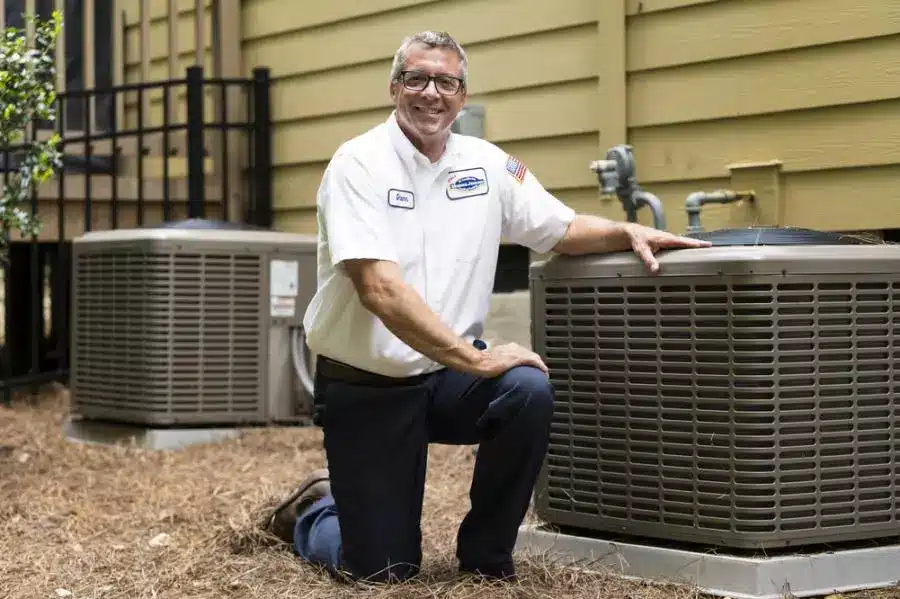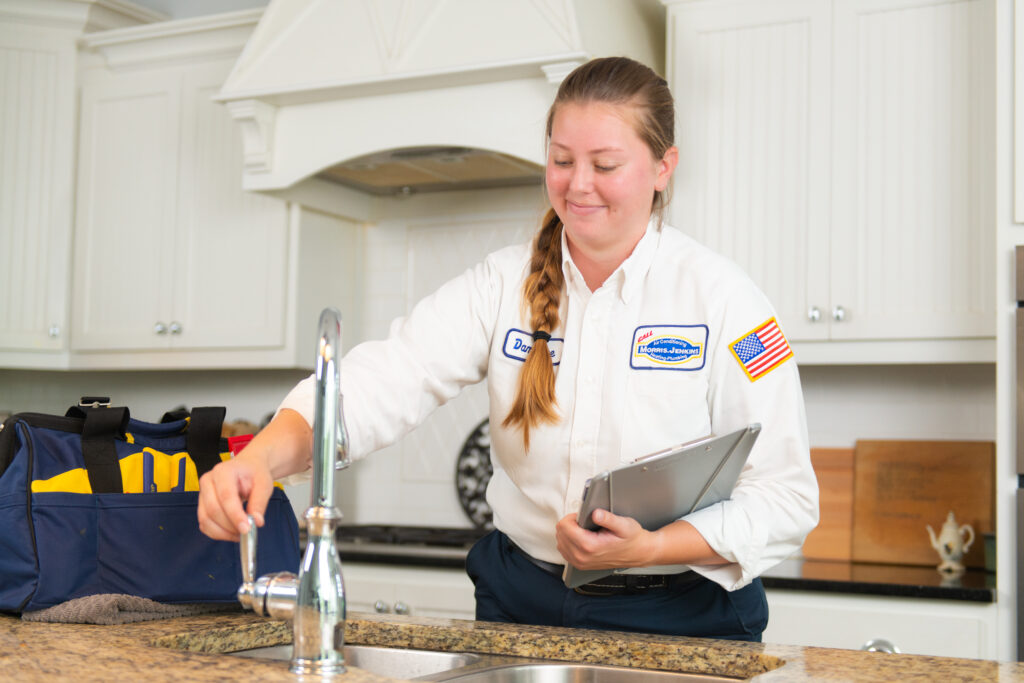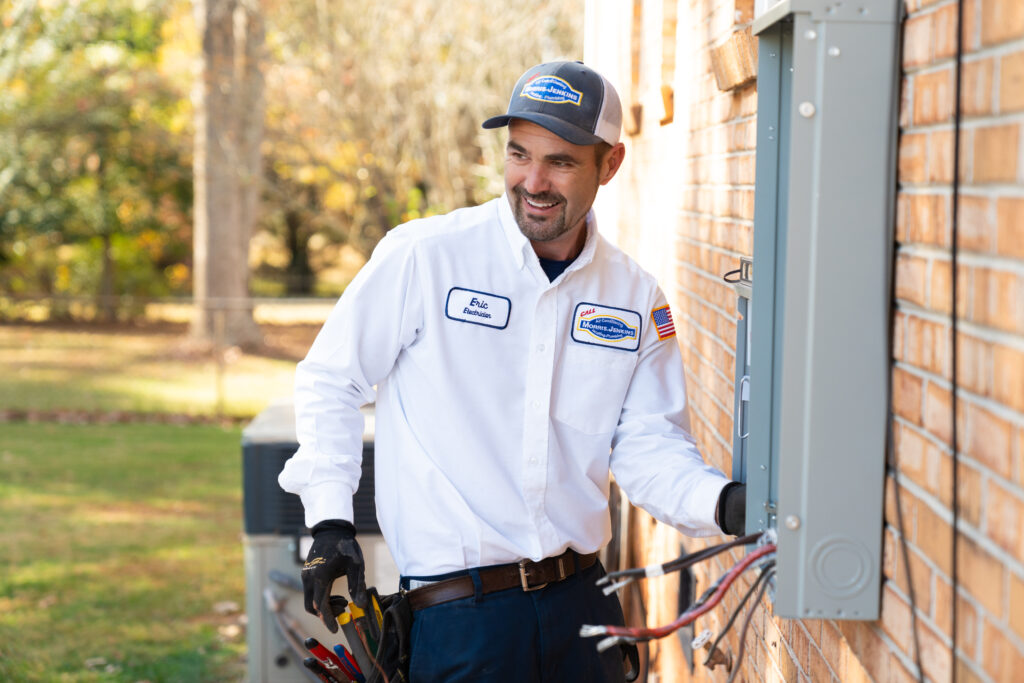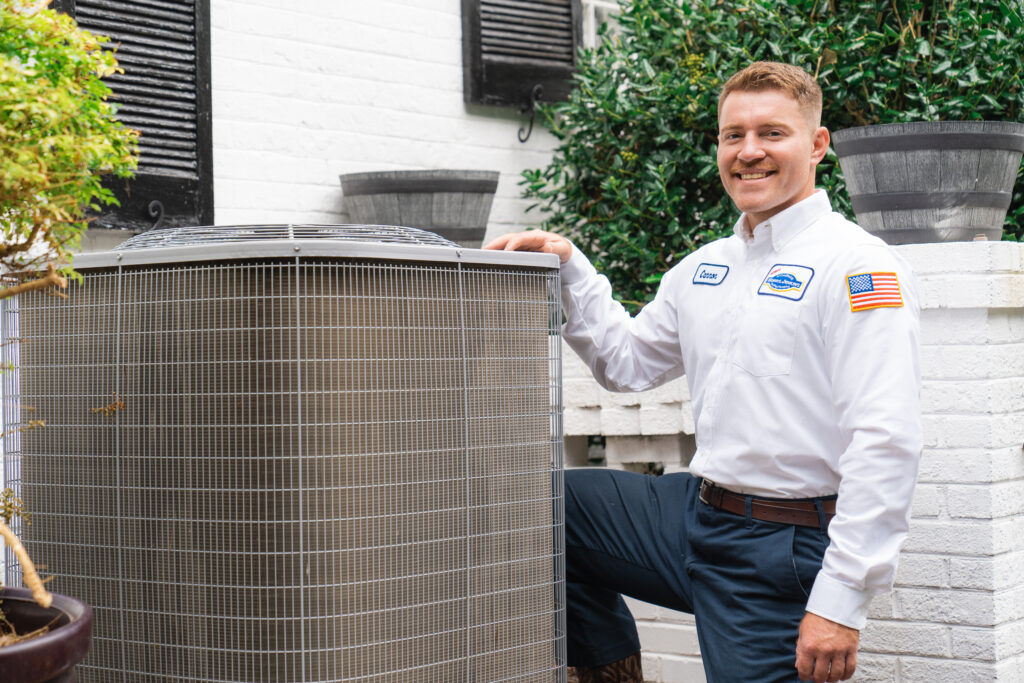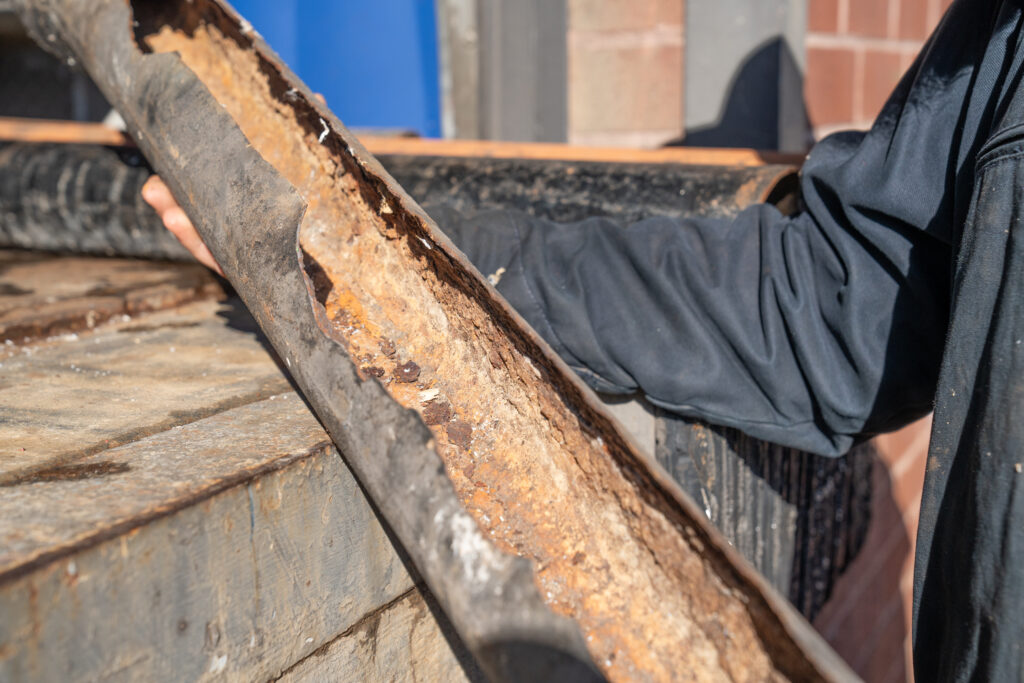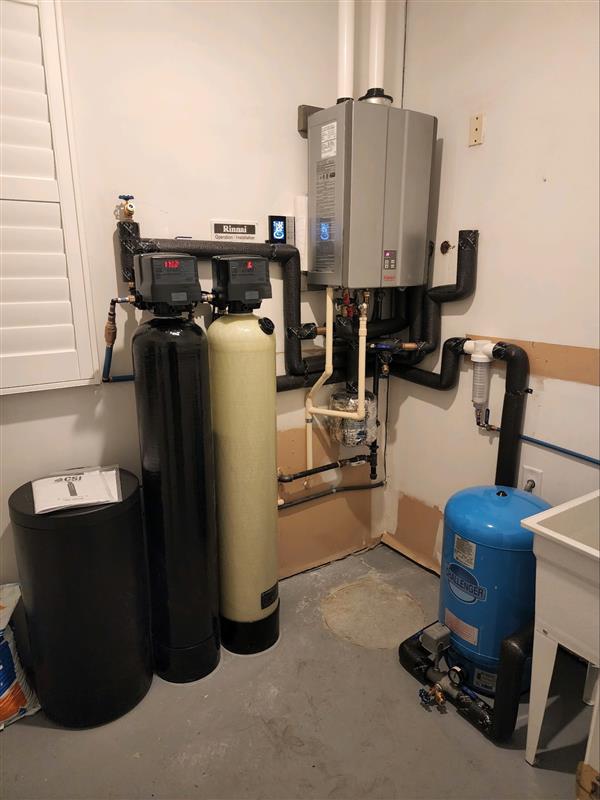You know when you’re using more water or energy than usual because your utility bills go up. What if we told you there are some ways you can save money on your utility bill and help the environment? We’ve collected some of the top ways you and your family can “go green” with your heating, air, and plumbing!
Impact
Every day, the population continues to grow. The thought that one person could make a difference in the world seems impossible, but with a few changes to your heating, air, and plumbing, you can help in a big way! Not only does going green make the world a better place, but it makes your wallet happy, too! When you aren’t using as much energy or water, you’re spending less on your utility bills.
HVAC
The average American spends about $111.67 on their electricity every month. With just a couple changes to your home, you and your family can drastically reduce your monthly expense and your carbon footprint!
Maintenance
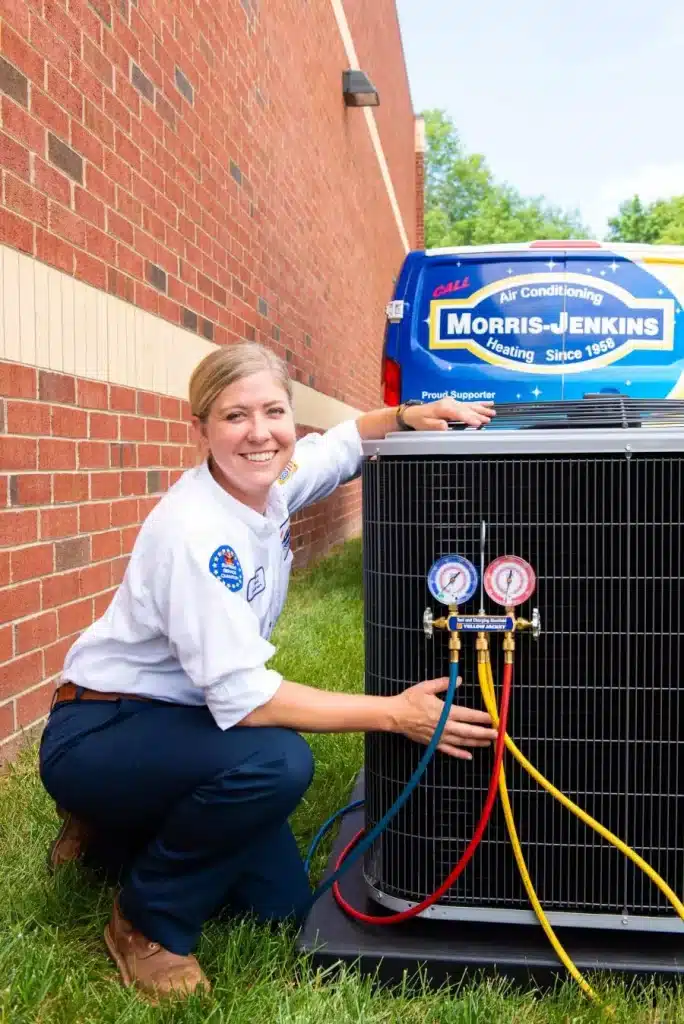
Regular maintenance ensures your unit is running as efficiently as possible. During a maintenance visit, your technician will clean your unit so it can run with as little resistance as possible (which saves energy). Think of your air conditioner as a vacuum cleaner. Your vacuum uses air and suction to clean the floors, and your AC does the same thing in order to remove heat from your home! Just like your vacuum bag gets dirty, your AC gets caked with dust, pollen, and debris. And just like your vacuum, your AC loses suction as it gets dirtier. When that happens, your air conditioner has to run longer and longer to achieve the same results as it once did, which can rack up your utility bills. When you have your A/C cleaned, it’s just like putting in a new vacuum bag! Your A/C will run more efficiently, work better, and save you money! What’s not to like about that?
While your technician is doing your maintenance, they’ll inspect it for any leaks or other damage that could lead to wasted energy. Did you know you should have your HVAC maintenance done twice a year? Most people are unaware that the warranties on their products often require annual maintenance on their unit (once for their AC, once for their furnace). If you leave your unit
Routine maintenance on your heating and air system can lower your utility bills by up to 30%!unchecked, it can also make your unit unsafe (especially your furnace, which could develop a carbon monoxide leak).
Wanna make sure you never miss your seasonal maintenance? Become a Priority Advantage® Member, and we’ll make things easy for you! Our Members have the peace of mind knowing their unit is running safely and efficiently all year long.
Related: “Is HVAC Maintenance REALLY Worth it?”
R22
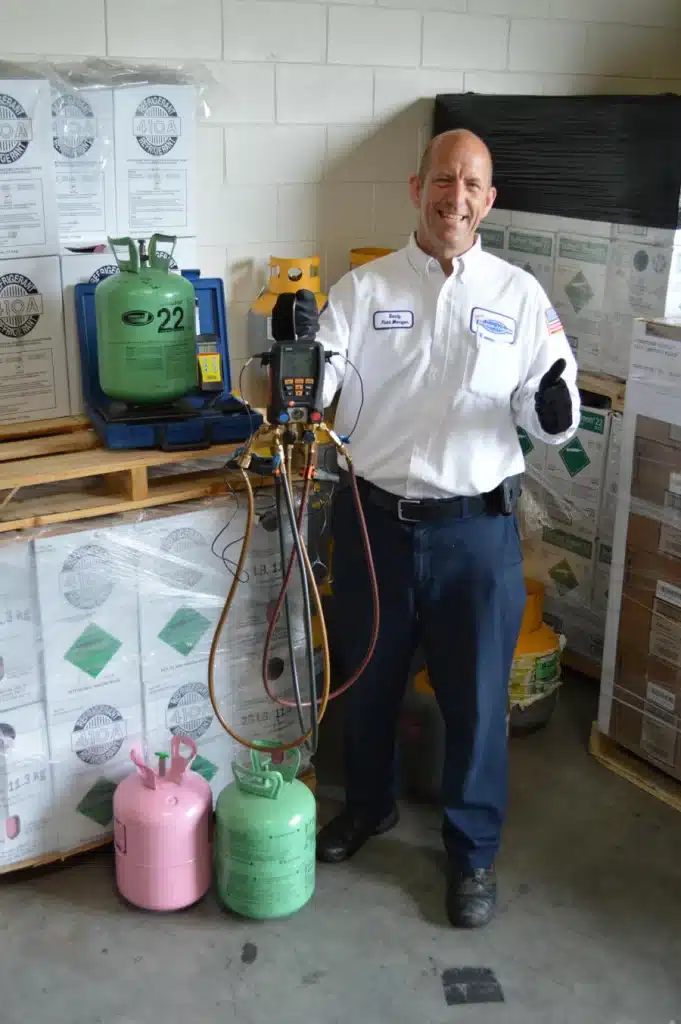
Once upon a time, R22 was the standard refrigerant used in air conditioning and heat pump systems. Unfortunately, R22 depletes the ozone. Not only is it dangerous for the environment, but R22 is hazardous to your health. If exposed to R22, you can develop respiratory issues. In fact, the container also lists “sudden death” as a possible hazard! Thankfully, as of January 1, 2020, the US Environmental Protection Agency (EPA) made R22 illegal to manufacture or import into the United States. This means all new AC units have to use alternative refrigerants and replacing R22 refrigerant will become more and more difficult. If your unit still uses R22, you might want to consider replacing it because service on your unit is going to become more expensive and difficult as time goes on. Not only that, but newer HVAC units are often built to be more energy efficient, which is great for the environment and your wallet!
Recommended: “How to Tell if You Have a Refrigerant Leak”
Smart Thermostat
Morris-Jenkins is proud to be a trusted Nest Pro Dealer. In fact, we were chosen to be the very first Nest Pro Dealer in Charlotte! Our technicians are highly trained professionals, so they’ll install your Nest products the right way the first time! Not only that, but we guarantee it with a 5-year extended warranty.
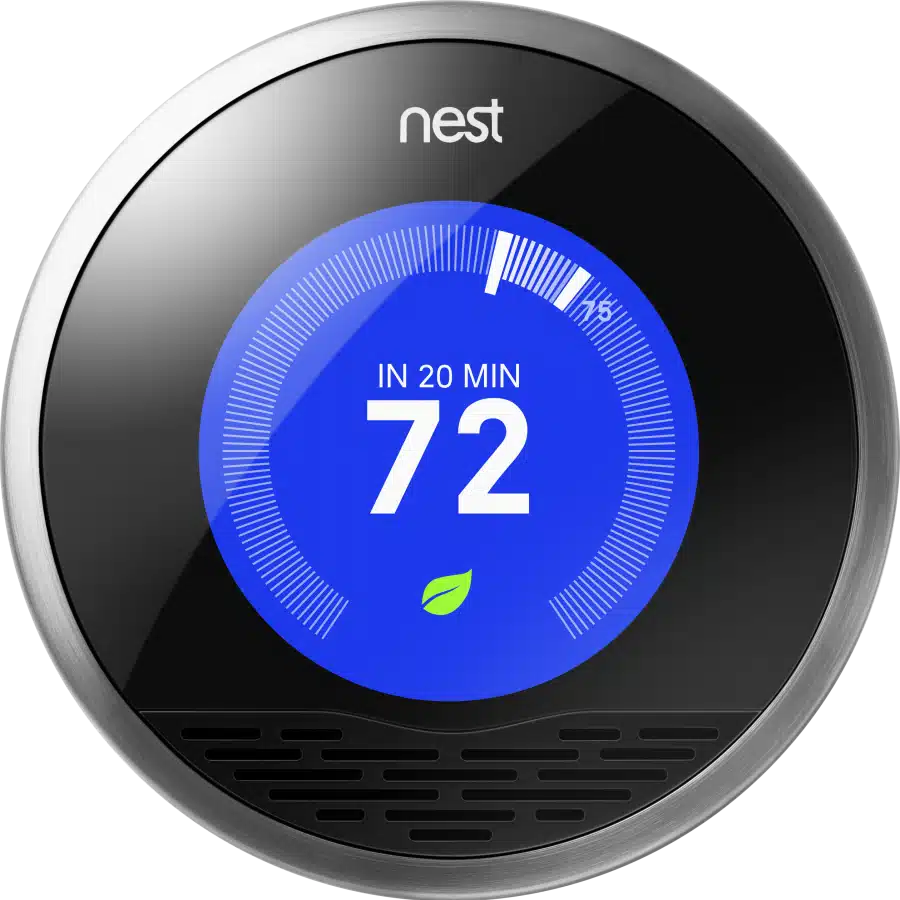
One of the Nest products our customers love is the Nest Learning Thermostat. The Nest Thermostat programs itself to save energy, and it can also teach you what temperatures are best for the environment. It has a neat feature where it learns when you’re away from home and it adjusts the temperature, so it doesn’t heat or cool an empty home, saving you money and protecting the environment!
Useful tip: Some local utility companies will give you a rebate for up to $50 for using the Nest Pro Thermostat. Contact your local utility company for information.
A Nest Thermostat can make sure your home stays comfortable in the most energy efficient way possible.
Heat Pump
Wanna decrease your energy consumption during the winter months? Consider installing a heat pump, if you don’t already have one! They use less energy than a furnace, but they still keep your family warm and cozy at home. They run on electricity instead of gas, so you can save on fuel consumption. Not only that, but they don’t use fire to create the heat, so you don’t have to worry about creating carbon monoxide in your home or releasing greenhouse gases that could hurt the environment.
Filters
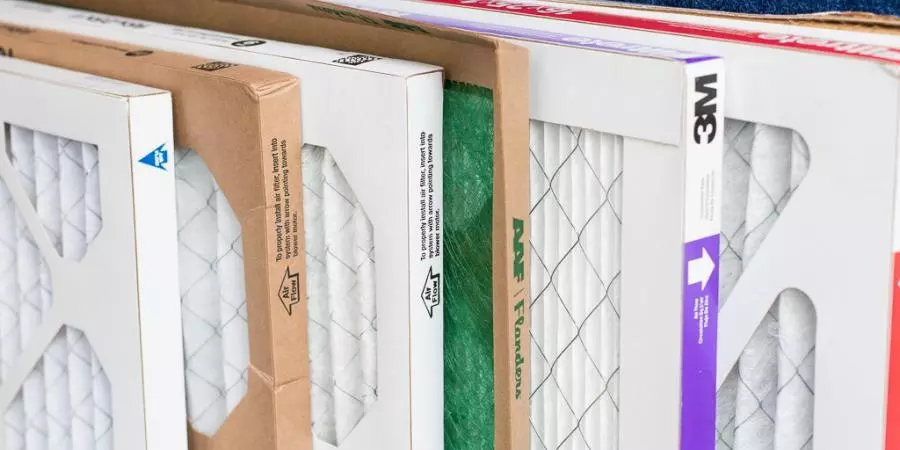
How often are you changing your filters? You should be changing them every 30-60 days (unless you have a 5-inch media filter). Your filter’s job is to protect your unit and keep it free of dust and debris. If your filters get too dirty, it can get your unit dirty, and that means it has to work harder to do its job for your family. This wastes energy! Keeping up with filter replacements means your unit can save energy and even keep your family more comfortable than it would if it were dirty.
Wanna learn more about filters? Check out our blog that’ll answer all your questions: Filters 101!
Plumbing
The average person directly uses about 100 gallons of water every day. This includes every time you turn on your sink or shower, every time you flush the toilet, wash your clothes and dishes, even water the lawn or your houseplants. Let’s not forget your indirect water usage—that’s water used to provide electricity to your home and water that helps produce the food you eat. When you make even one change to your home’s plumbing to make it more “green,” you can make a difference on the environment (and your wallet)!
Tankless Water Heaters
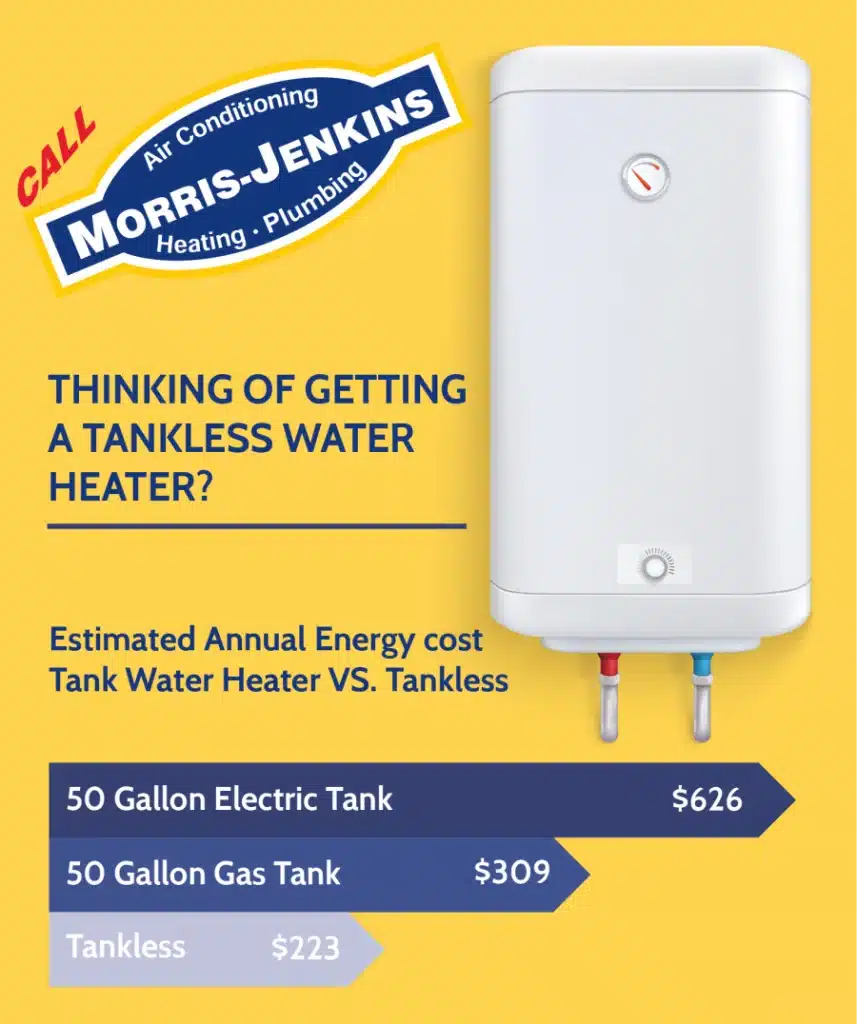
Tankless water heaters are one of the best things you can do to conserve energy! The average tankless water heater can save you hundreds of dollars a year on your utility bills. Standard water heaters fill up with water and are designed to keep the reservoir water heated at all times. Tankless water heaters, on the other hand, only heat water when you want it. Most tankless water heaters are considered 95% efficient, whereas standard water heaters are only 70% efficient. That means 95 cents out of every dollar spent with your tankless water heater goes toward actually heating the water and only 5% is wasted smoke, unlike the 30% that a tank water heater wastes. Wanna know how else tankless water heaters compare to standard water heaters? Check out our blog: Pros and Cons of Tankless Water Heaters.
Fix Leaks ASAP
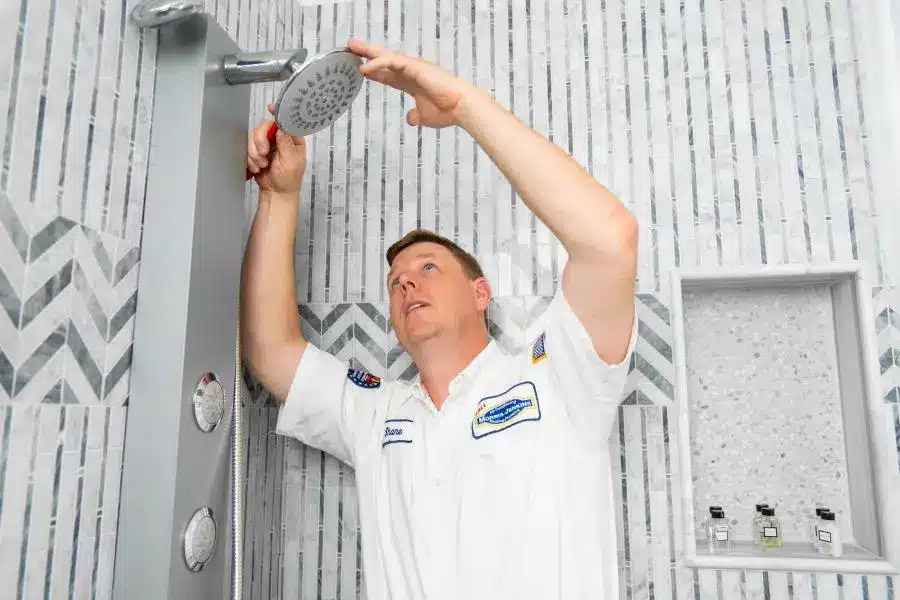
If you think your dripping faucet is nothing more than a minor annoyance… think again! According to the EPA, a leaky faucet that drips once per second wastes over 3,000 gallons in just one year. That’s enough water for nearly 200 showers! When you notice your home’s plumbing is leaking, even just a little bit, it’s best to have the leak repaired. You’ll save a ton of water!
If your home uses city water, your water supply has chlorine in it. Chlorine helps ensure your family has clean water, but unfortunately, chlorine degrades your faucets and toilets, and this can cause faucets to drip and toilets to run, which wastes a lot of money. A lot of our customers opt to install a chlorine removal system to filter out chlorine fromyour water, protecting your plumbing.
Water Usage
When you’re trying to save water, it can be hard to figure out where you can use less. You still have to shower, flush toilets, water the lawn, and so much more. Thankfully, there’s a solution! Morris-Jenkins is proud to offer low-flush toilets and faucet flow reducers!
Low-Flush Toilets
Old toilets can use upwards of 3-8 gallons of water per flush. Think about how many times you and your family use the restroom every day. That’s a lot of water wasted! Nowadays, there several options for different “low-flush” toilets. The ones we offer flush with just 1.28 gallons of water! In the 90s, the government mandated that all toilets sold from that point on must use no more than 1.6 gallons per flush. You might think that less water per flush means the toilet isn’t as efficient, right? Not all toilets are created equal, but we’re selective about the products we offer you. We don’t offer toilets we don’t believe in. Our toilets will flush twice the amount of debris as the old toilets without clogging!
Faucet Flow Reducers
Faucet flow reducers are a small change you can make to your home’s plumbing that’ll save a ton of water without you ever noticing! A faucet flow reducer does exactly what it sounds like—they reduce the flow of water from your faucet! With these, your water pressure is slightly reduced. Most faucets we offer have built-in restrictors that help you save more water than others, it’s just about picking which faucet is best for your family.
Energy and Water-Efficient Appliances
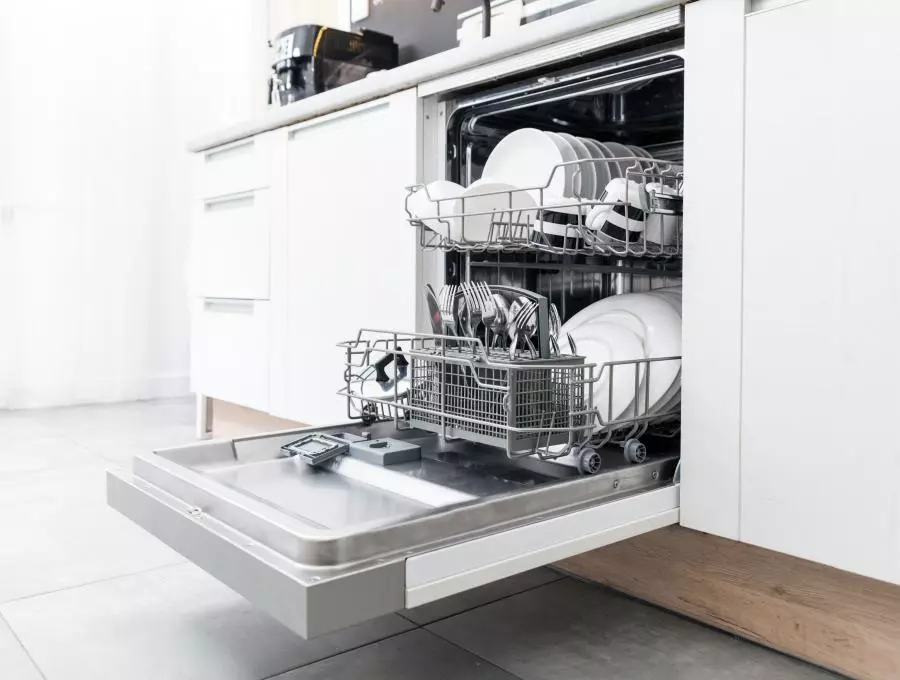
How often do you run your dishwasher? What about your clothes washer? These appliances can use a lot of water! Energy and water-efficient appliances are better for your wallet and the earth! More than half of energy in the US comes from burning coal and natural gases, and this damages our environment. When you install an energy-efficient appliance, you’re burning less energy, and lessening your impact on the atmosphere. If you have water-efficient appliances, less water is pulled from natural sources like rivers and springs. Even though people typically only think the western states have problems with water sources running dry, it’s still important to be mindful of our limited resources in the Carolinas. Everyone should do their part to preserve our environment!
Bio-One
Consider the chemicals you pour down your drain to clean them… are they healthy for your pipes? Usually not. Are they healthy for the environment? Probably not. A lot of people pour chemicals down their drains to clean them, but most of these chemicals aren’t environmentally friendly and can potentially damage your pipes. If your home is on a concrete slab, this kind of repair can get especially expensive. So… what’s a good alternative? We recommend Bio-One. Bio-One is a natural, environmentally safe alternative. Consisting of bacteria that eats up soap scum, toothpaste, hair, and more, Bio-One is great for clearing your drains and keeping them free of clogs!
Going Green
Every little change you can make to your home’s heating, air, and plumbing can make a world of difference. Any energy or water saved lessens the impact we all have on the environment, leaving the world a better place for future generations. Whether you choose to install low flush toilets or a smart thermometer, there are tons of options to make your home green!
Ask us what improvements we can make to your home!
